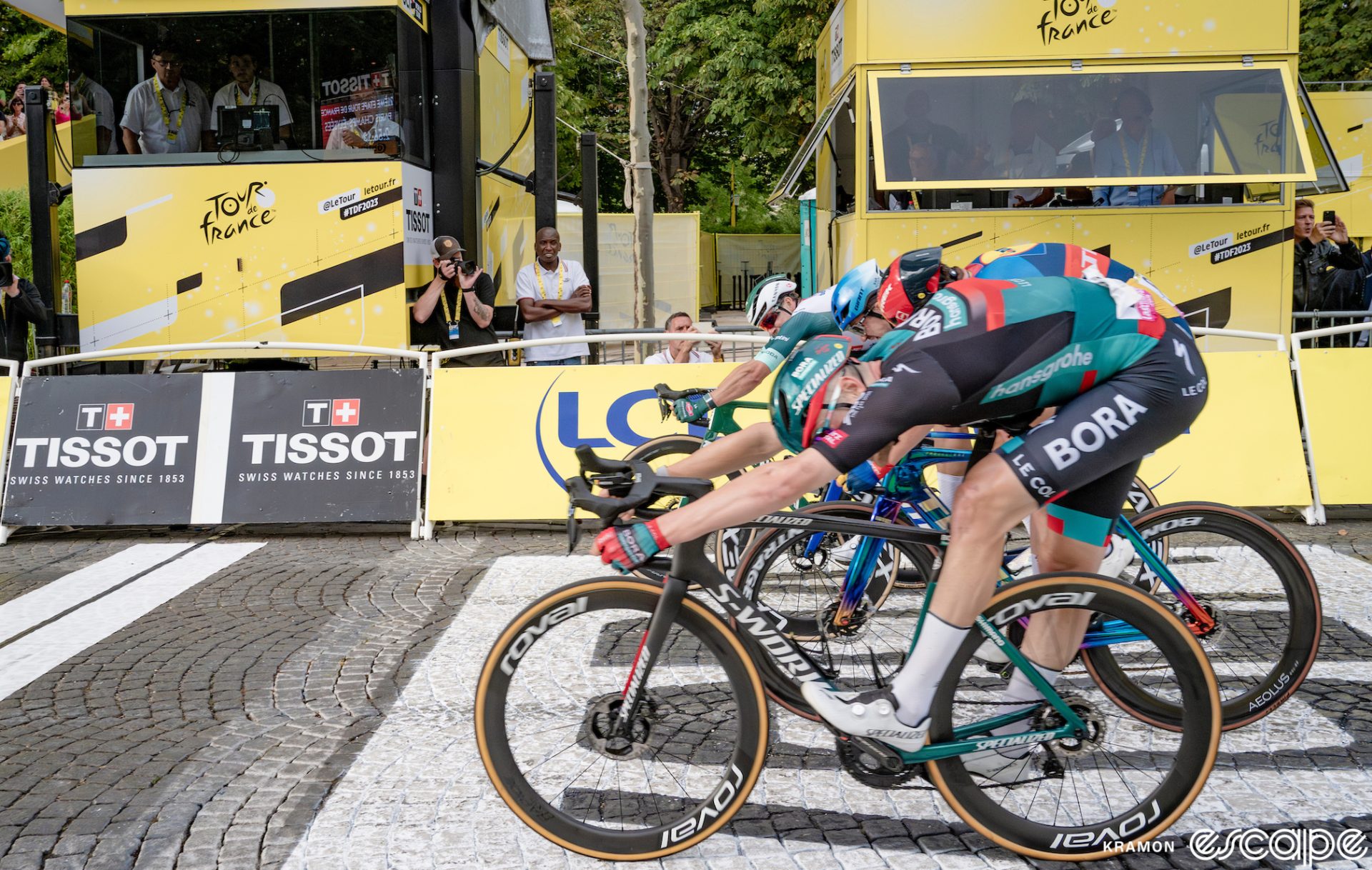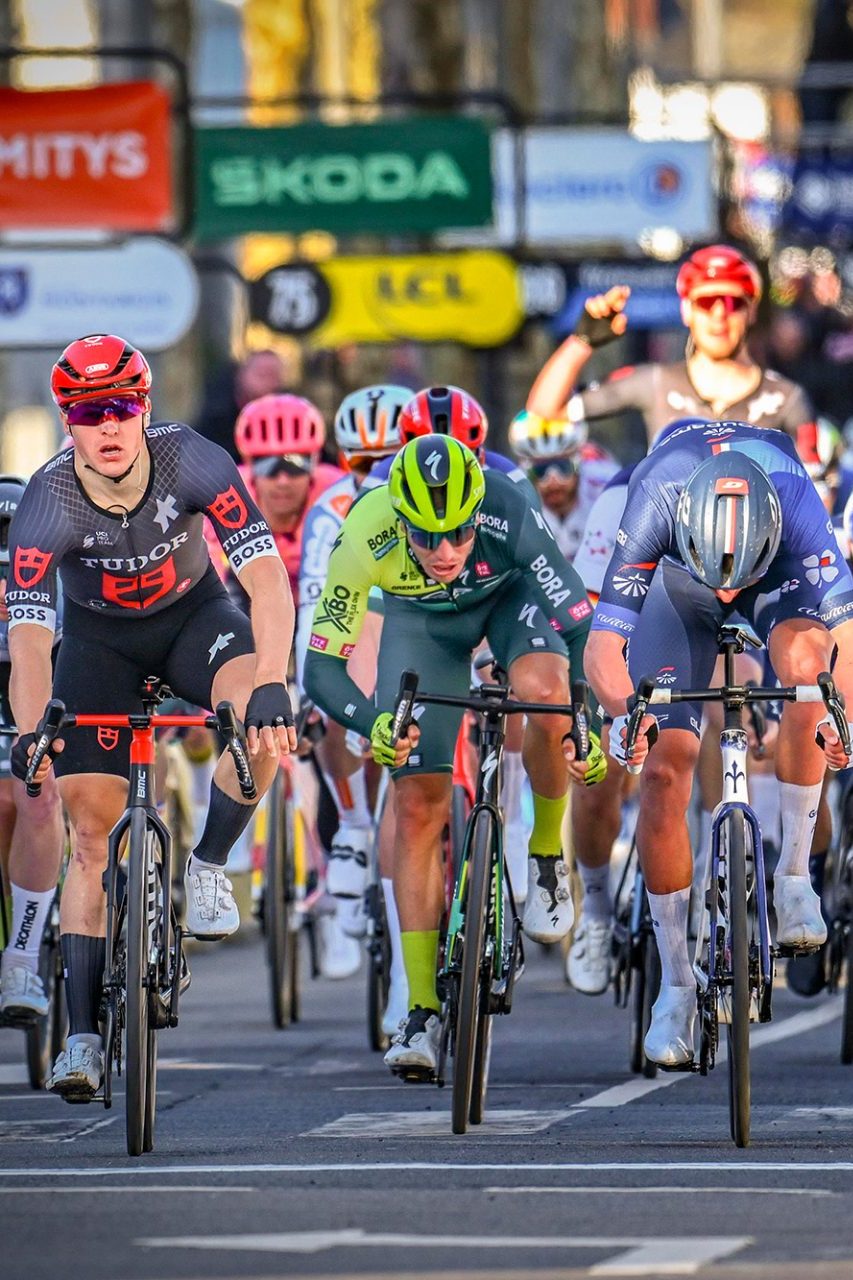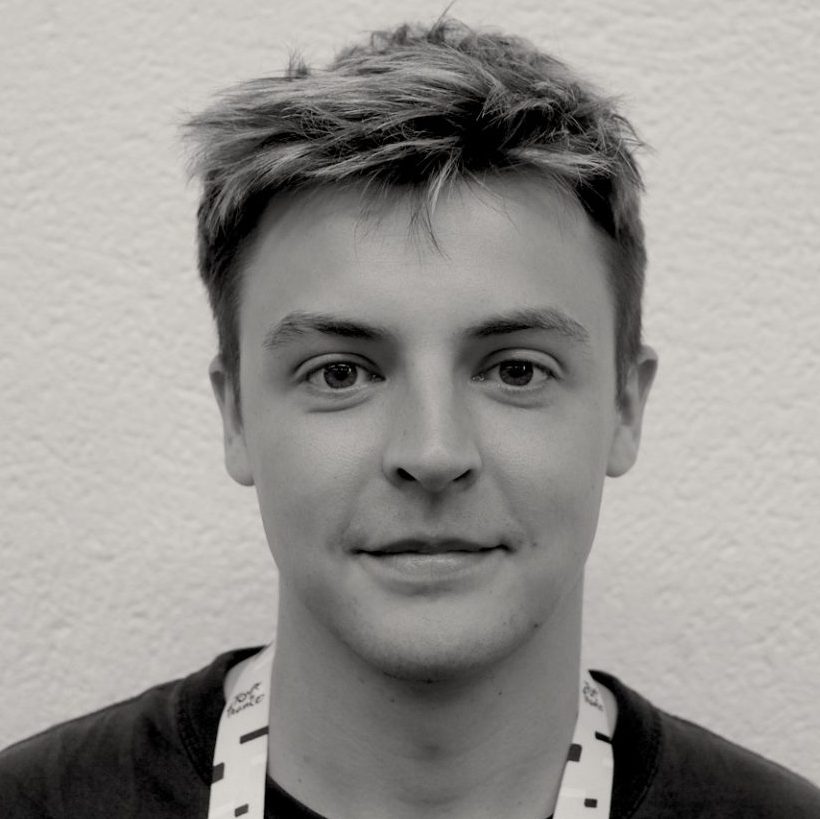When your mission statement is to be as fast as possible there is one golden maxim, succinctly delivered by Will Ferrell’s Ricky Bobby in the NASCAR movie “Talladega Nights”: if you ain’t first, you’re last.
This applies perfectly to the bunch sprinters of the peloton. All that counts is whether you have a 1 next to your name at the end of 200 or so kilometres.
It’s not the same lifestyle as GC riders, where making the podium, or even the top 10 of a Grand Tour is looked upon as a magnificent achievement. With climbers, there is the physiological reality that a rival has better legs than you, and there is little to be done about that against the gradient.
Hurtling towards a flat finish line, is instead what Mark Cavendish describes as “chess on wheels,” and in his most recent extension of this cycling-as board-game crossover universe metaphor, is one played without a king. Instead, 2024 has a democratic republic of sprinters, all able to stake a claim to the fiefdom.
Sure, Jasper Philipsen exerted a vice-like grip over the few sprinting stages at last year’s Tour de France before Bora-Hansgrohe’s Jordi Meeus thwarted a would-be fifth shutout on the race. But what about that May’s Giro d’Italia? Jonathan Milan, Michael Matthews, Kaden Groves, Mads Pedersen, Pascal Ackermann, Alberto Dainese, and Cavendish all scored victories.
Caleb Ewan in 2020 temporarily sat astride the throne of world’s fastest man following his win on stage 3 of the Tour de France, picking up where he had left off after his triptych of victories at the race in 2019, and rattled off where he wanted to go from here: winning World Championships, Milan-San Remo, more Tour stages, more … everything.
It’s rarely that simple. For Ewan, only a couple of Giro stages stand out amongst more minor victories in the three seasons since, which led to the growing frustration of Lotto-Dstny and his eventual return to home squad Jayco-AlUla.
“In the Tour for example last year, I look back on it and my team probably look back on it as a bad Tour,” Ewan explained recently at the Tour of Oman of the ups and downs of life as a sprinter, and how winning is everything. “But I was still second and third, I almost won a stage, so I think results like that still give me faith that I’m not too far off the mark. It’s not like I’m coming 10th every sprint, and nowhere near the win. All it takes is getting that confidence back and then hopefully it flows from there.” Later that week in the Middle East he had crossed the line first for only the second time since September 2022. You could feel the relief wash over him. That self-belief begins to blossom once again.
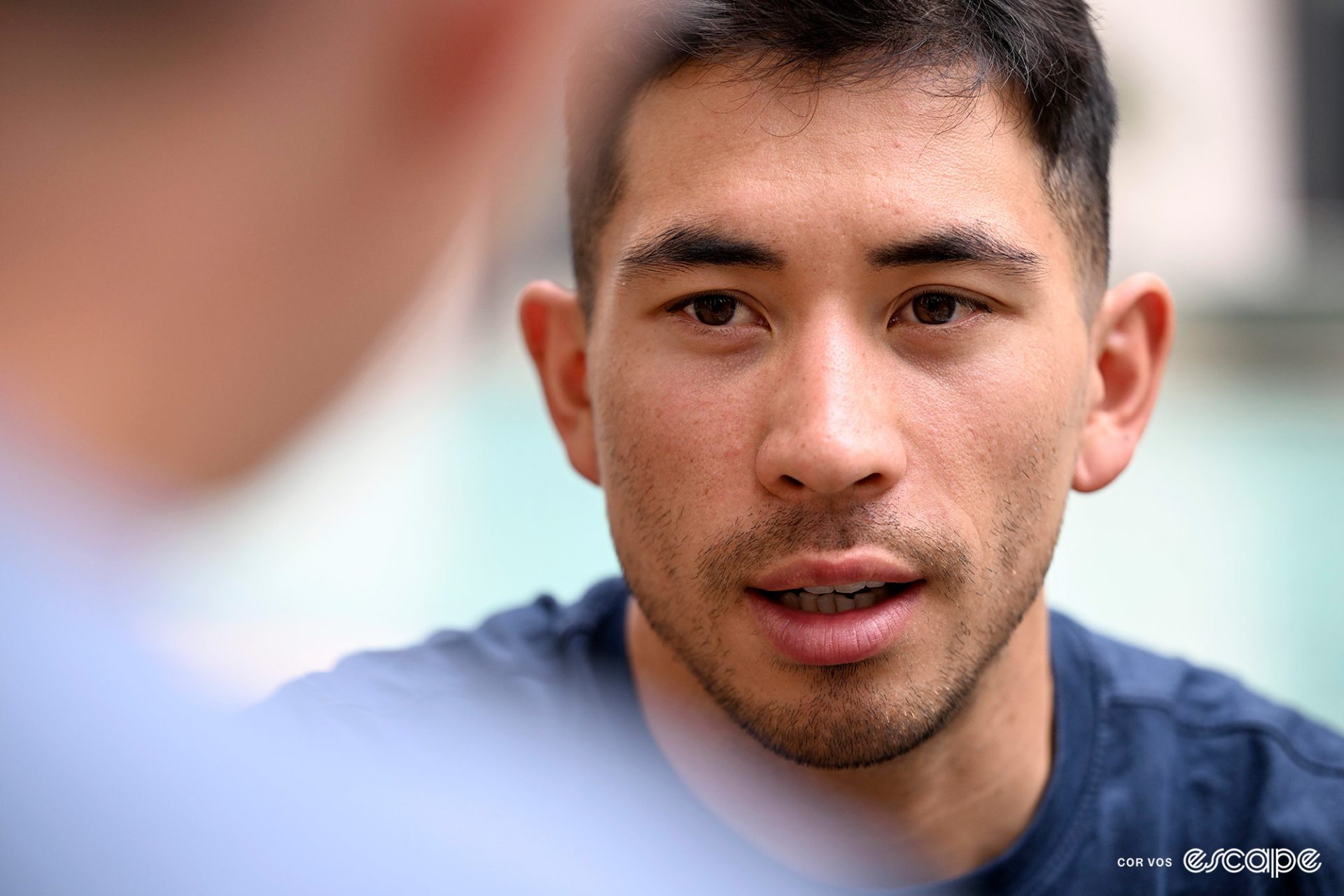
No one stays at the top forever. It’s a constant fight, whether you’re maintaining your position as one of the world’s best as Jasper Philipsen did while easing to victory on Tirreno-Adriatico’s opening road stage on Tuesday, punching through to make a name for yourself as Laurence Pithie has done, or dragging yourself up to previous heights as the likes of Cavendish and Ewan are attempting to do.
“I think it has changed,” Ewan then pondered on the state of sprinting in 2024. “There seems to be a lot more good sprinters. I’d say a few years ago, there were two or three guys that were always winning, whereas if you look at the Giro last year I think there were seven sprint stages and seven different sprinters won a stage.
“I don’t remember a time when it was like that before, it was always one or two just dominant sprinters. That means it is getting harder to win. You have to really nail your sprint every time because you know either in front or behind you there’s going to be a good sprinter lining you up and if you go too early and start fading you know there’s going to be a quick guy coming, or if you leave it too late then maybe you’re not going to be quick enough to come around the guy in front of you.”
This crystalises the uncertainty faced by the fast men, a constant re-learning of the craft, as Ewan told our Matt de Neef at the Tour Down Under in January.
“I feel like I had sprinting pretty much worked out until maybe the last few years [where] it changed a lot. It’s something that I think about a lot, and I know I need to probably change the way I’m sprinting. But I’m not quite sure exactly how yet. I just kind of need to keep racing, just change little bits by little bits and see maybe where I’m going wrong, or what I need, or what I need from my teammates to get me in the best position possible to do the sprint.”
Alexander Kristoff, the immutable Norwegian seemingly chiseled from stone, has been around the block. He may never have been billed as the world’s best, but he’s outlived Marcel Kittel, André Greipel, Peter Sagan, soon Cavendish also, and in 2020 sprung a surprise to the rest of the field when he won the first Tour stage and yellow jersey. His previous stage wins came in 2014 and 2018, and so a patience is now built-in to the ageing sprinter, and a resilience to keep plugging away regardless of the ever-changing cast of rivals.
“The level is maybe more equal, more guys can win,” the 36-year-old agrees with Ewan. “A few years ago it was maybe more like the Tour last year where Jasper won so many stages. Before, like if Fabio [Jakobsen] was in super shape, he would take all of the wins. We were just fighting for the rest. I think it’s also maybe to do with equipment, everyone’s a bit faster and so when you come out from the draft in a higher speed and then the faster you go the more percentage this will be. You go faster than before, so maybe it’s about more than pure strength.”
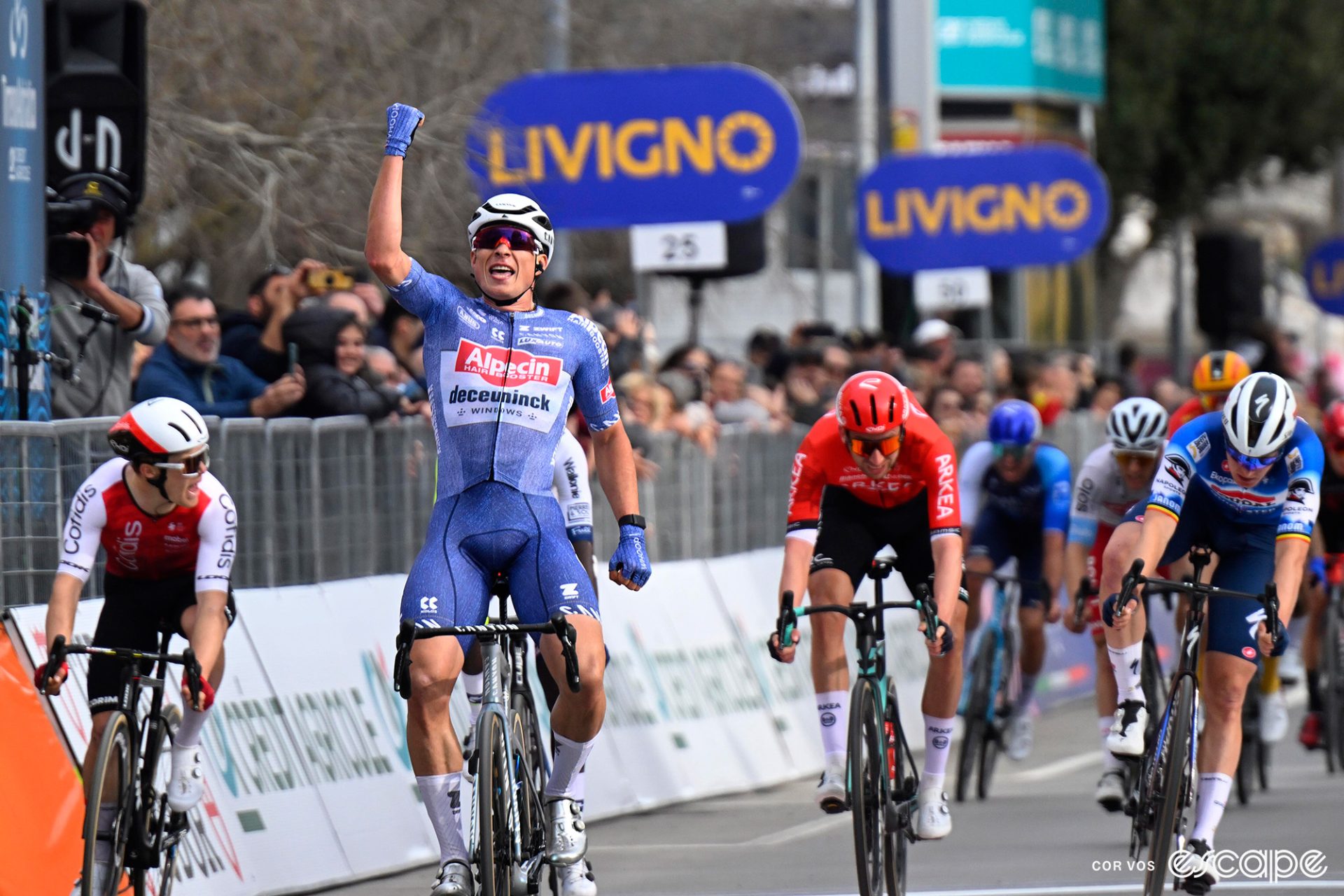
Even in the twilight of his career, Kristoff is now seeking these little percentages where he may not have before, heading off to altitude camp for the first time in his career. Why now?
“I have a lot of kids; three weeks away and not racing is a lot of time away without any results coming in,” he says of the sacrifice. But with professional cyclists, especially sprinters, it’s always about the bottom line of victories, and the sacrifice is not his alone.
“First of all on a camp you train then relax, you’re 100% focused. That’s the main thing that will help me for the Tour to be 100% fresh. I feel a bit sorry for my wife.
“[In previous seasons] I’ve been suffering a lot and struggling so I will help it helps in that respect, that my shape will be slightly better and I’ll feel better going into the sprint. For example, the last few years I’ve been on the limit heading into the sprint, and then it’s hard to do a good sprint when you’re already at 100%, you maybe need to be 90% and then have 10% left to accelerate. If altitude helps me in this respect then it’ll be worth it.”
For Jakobsen, having already rebuilt a star career following a near-fatal crash at the 2020 Tour of Poland, it’s time for another new start outside Soudal-Quick Step, a transition that sees many sprinters fall from their once world-beating heights.
Following his first outing with DSM Firmenich-PostNL in Oman, Jakobsen could be spotted huddled after the finish line with his teammates, articulating what hadn’t worked so well, as the squad and its new sprinter go through the inevitable growing pains of their new partnership.
“It’s new riders, new leadout, a new team, you need to communicate with each other, understand each other, know what you want to do,” Jakobsen explained, offering the list of required improvements.
“I think that’s normal if you change jobs you have to find out who’s working in which ways. I have a bit of experience but it’s not like i’ve been in professional cycling for 15 years, only for six years. We just try to learn with each other, get better and then if we started with a win that would be nice but even then you’re still not perfect, so the guys in the future will do a good job. Today we were there in the final. We’ll go from here and try to improve.”
As well as the all-or-nothing results sheet, it’s harder for a sprinter – when they lose whatever made them a winning sprinter – to transition into something else within the peloton. GC riders can fairly seamlessly become stage-hunting breakaway specialists or luxury domestiques for other team leaders.
“If I have two more bad years it’s kind of career over,” Ewan admitted. Mark Cavendish faced a similar proposition not so long ago, and it was only his palmarès and relationship with team boss Patrick Lefevere that afforded him a Quick Step lifeline that likely few other sprinters would have had available to them. After those couple of comeback years, the unlikely destination of Astana Qazaqstan came calling, with Cavendish providing an unexpected focal point for a team otherwise lacking identity or direction.
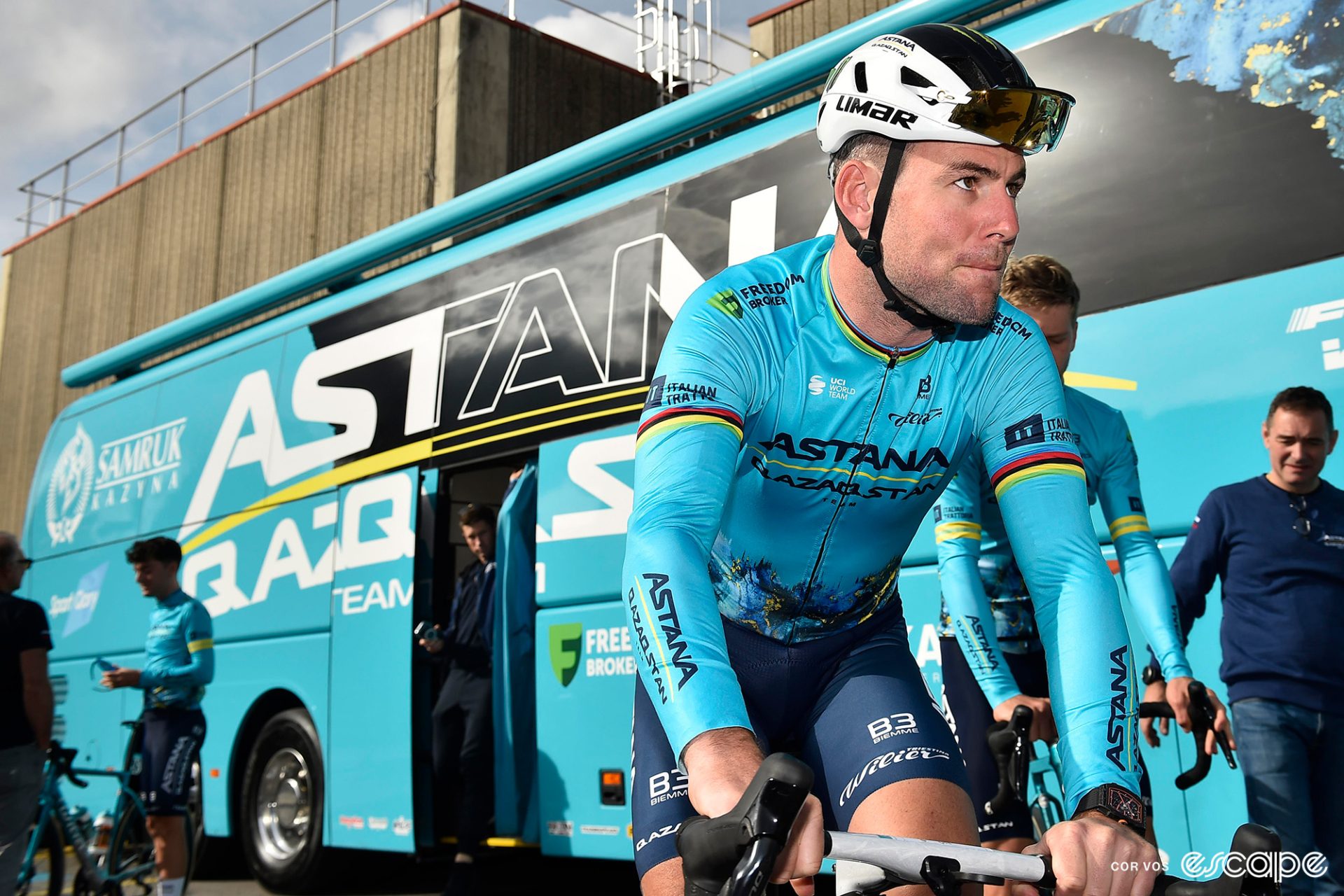
As German sprinter Phil Bauhaus recently told our Andy McGrath, the current exacerbated precarity of the bike racing industrial complex means teams want to win more than ever, and chucking a sprinter into a bunch sprint melee is a likelier path to victory – or at least some valuable UCI points – than putting a climber up against the likes of Pogačar, Vingegaard, Roglič or Evenepoel.
“They didn’t even have a sprinter. Or if they did, they didn’t have a leadout,” Bauhaus said of teams like Astana and Movistar. “Now, you can see that basically every team has a sprinter in their line-up. And every team is trying to make the best possible lead out they can. There are more and more riders involved in the final and many more sprinters.
“My personal feeling is that the Covid crisis had a part in this,” Bauhaus added. “Before [Covid], every team was a bit more chilled and didn’t feel the pressure so much. Then, with Covid-19 coming, every team saw how vulnerable they are, with sponsors or in general. Then with this relegation [system], every team needs points.”
The inherent anxiety of sprinting is what gives it its mysticism. That so much rides on crossing the line a fraction of a second ahead of your rivals, that this can make or break careers. The cost of victory is the uncertain road to get there. For every Jasper Philipsen in a green Porsche post-Tour de France, there’s another would-be fast man sitting nervously on a bus wondering whether they actually have what it takes.
Did we do a good job with this story?
